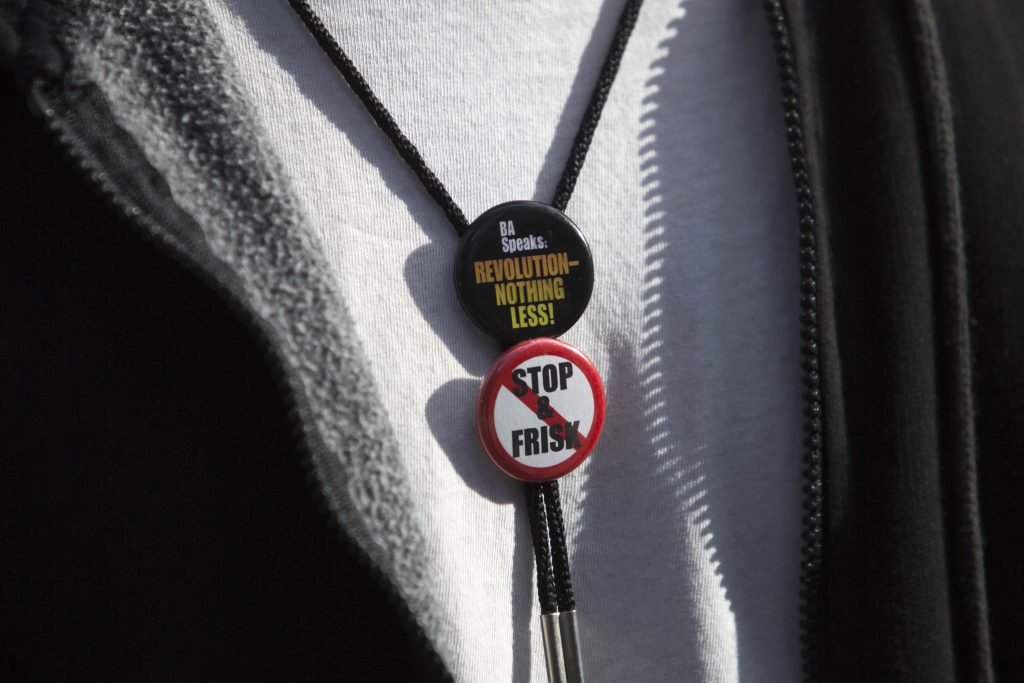
Having defended the NYPD stop-and-frisk program throughout his three-term tenure as mayor of New York, and having repeated that position without reservation only some months ago — it reduced crime, did it not? — Michael Bloomberg, now attempting to appeal to the various constituencies that make up the Democratic Party, has apologized: “I want you to know that I realize back then I was wrong and I’m sorry.”
Bloomberg issued this apology at a predominately African American mega church in Brooklyn, a choice of venue that implicitly endorses the common argument that stop-and-frisk was “racist” because those stopped and frisked were overwhelmingly male members of minority groups.
Bloomberg is right to apologize, however suspect his sincerity, but for reasons very different than the ubiquitous assertions about the racist nature of stop-and-frisk. Stop-and-frisk is not “racist” because it is wholly appropriate for policing to allocate disproportionate resources — manpower, administrative attention, etc. — to geographic areas in which serious crime is disproportionately high. Suppose it was white neighborhoods in which both crime, police presence, and arrests were high. Would that demonstrate anti-white bias?
No, stop-and-frisk was and remains a deeply problematic practice for reasons much more fundamental, a reality with respect to which such supporters of ever-more powerful government as Bloomberg are eternally blind. It is the 4th amendment issue that Bloomberg and former NYPD Commissioner Ray Kelly and Manhattan Institute scholar Heather MacDonald refuse to address. Are we to accept the premise that stop-and-frisk is justified merely because it reduces crime substantially? If so, why not ignore the requirement for search warrants? Is it acceptable under the constitution for the cops to frisk someone merely because of a possibility that they might have a gun? Precisely how can the requirement for probable cause, or even only a reasonable suspicion, be made consistent with this?

I have tried in vain for years to obtain an answer to these
questions from supporters of stop-and-frisk. The closest that I have seen was
an op-ed by Kelly, arguing in summary that stop-and-frisk actually
is stop, question, and frisk. Kelly actually seems to believe that the latter is
a legal improvement over the former, that if an individual exercises his
unambiguous right not to answer an officer’s questions, it becomes even more acceptable
to trample the 4th amendment. Seriously?
This sort of reasoning is hardly limited to New York officials and observers. Consider the southern California policeman who writes under the pseudonym “Jack Dunphy”: He argued not long ago that it is perfectly acceptable for police officials disproportionately to stop random Hispanic drivers on Interstate 5 in southern California to check for drugs because — I am not kidding — the drug runners using that highway are disproportionately Hispanic:
The biggest omission in the reporting… was any mention of who controls the drug trade in Southern California (and elsewhere). The story goes to great lengths to demonstrate that the deputies are unduly focusing on Latinos in their enforcement efforts without acknowledging that it is Latinos, specifically Mexicans, who dominate the trade in cocaine, heroin, fentanyl, methamphetamine, and black-market marijuana.
That satisfies
the reasonable suspicion requirement?
Consider “broken windows” policing, an effort to reduce the incidence of serious crime through rigorous enforcement of minor crimes so as to reduce general disorder in specific neighborhoods. As with stop-and-frisk, there is some evidence that it reduces crime, but more work needs to be done in terms of controlling rigorously for demographic shifts and other factors. And as with stop-and-frisk, the supporters are decidedly uninterested in examining the effects of broken windows policing on the incentives and culture of the police. It is those effects that yield such outrages as the strangulation of Eric Garner, who attracted attention, and a chokehold, from an NYPD officer for selling some untaxed cigarettes. This led, naturally, to yet another opportunity for the various race hustlers to accuse the police of “racism,” a charge as deeply dishonest as it is corrosive of community/police relations. Do we really need to delve into the effect of the latter on community/police cooperation and longer-term incidence of crime? Do the supporters of broken-windows policing view such perversities as merely a cost of doing business?
The incentives attendant upon broken-windows policing are not salutary. How do police officials know that the cops on the street are doing their jobs? The only possible answer is some variant of a quota system for citations, the outcome of which, for example, is the issuance of innumerable citations for “loitering.” How realistic is it for the recipients of such citations to challenge them in court? What proportion of such citations are issued to upscale urbanites?
It was wholly predictable that local officials in various jurisdictions would be led to use broken windows policing as a substantial revenue source for their budgets, an outcome observed, unsurprisingly, in such poor communities as Ferguson, Missouri. The supporters of stop-and-frisk simply refuse to recognize that as much as we do not want to be victimized by criminals, neither do we want to be victimized by government. It is reasonable to hypothesize that stop-and-frisk in New York and elsewhere is the natural outcome of perverse policies: the war on drugs, the war on private gun ownership and self-defense, extremely high excise taxes on particular goods, etc. The story is old and familiar: As government acquires or simply assumes ever-more power, it comes quickly to demand even more so as to deal with the perversities attendant upon the earlier. Stop-and-frisk was an abomination.
The post Michael Bloomberg and the stop-and-frisk about-face appeared first on American Enterprise Institute – AEI.
